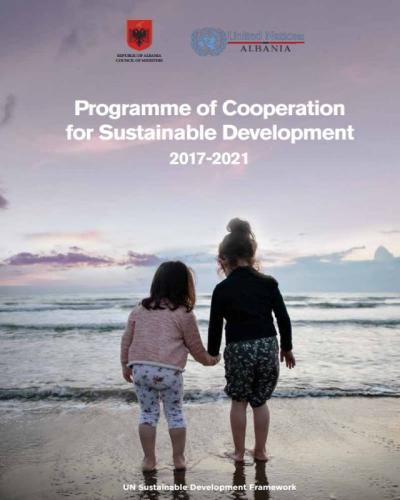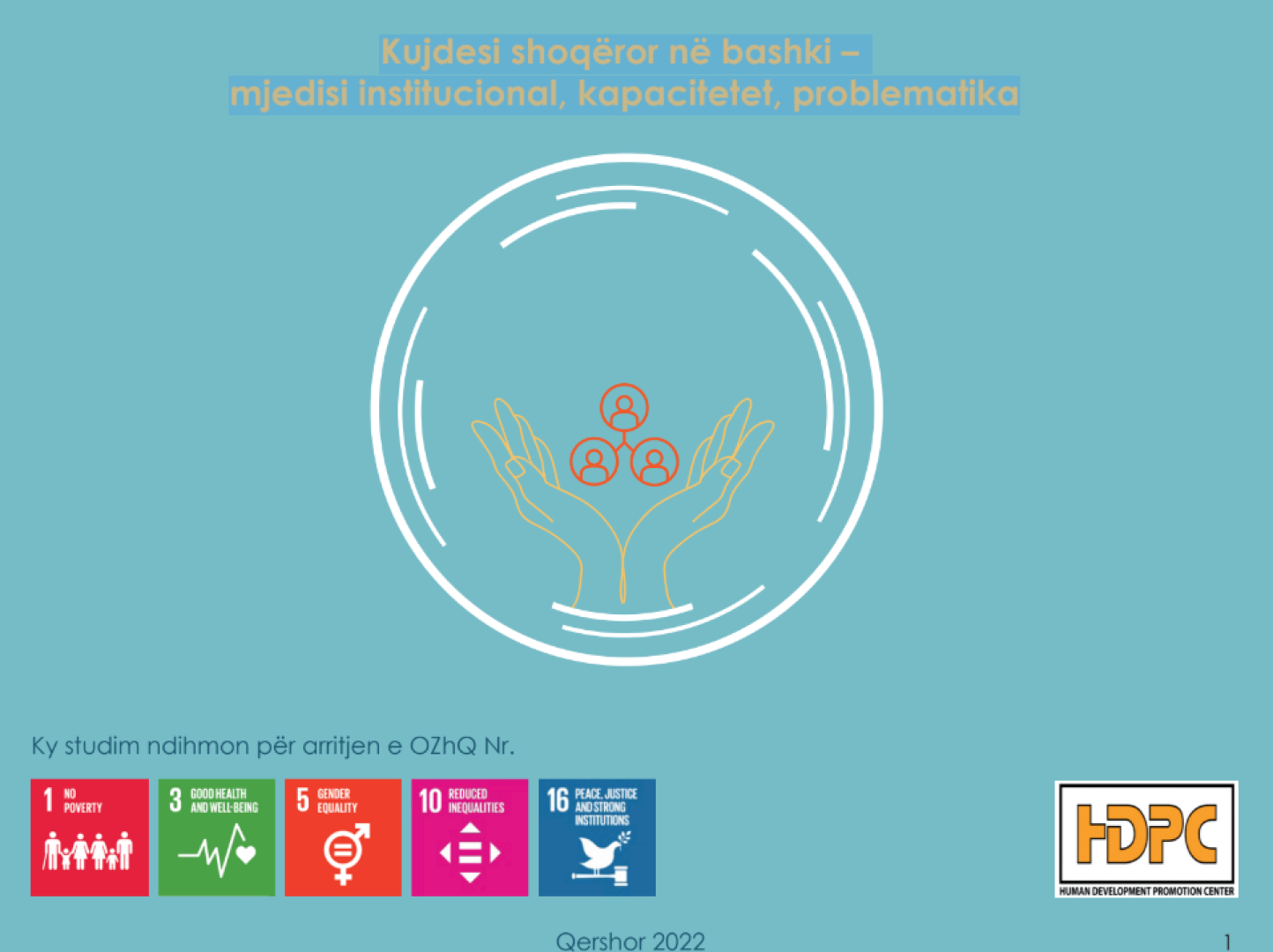Programme of Cooperation for Sustainable Development UN Sustainable Development Framework 2017-2021

In June 2014, Albania received EU candidacy status. In September 2015, Albania adopted the Sustainable Development Goals (SDGs), alongside all other Member States of the United Nations. In early 2016, the Government issued its National Strategy for Development and (European) Integration (NSDI II) 2015-2020.
These key events and ambitions underpin the United Nations’ Programme of Cooperation for Sustainable Development (PoCSD) with the Government of Albania for sustainable development. Albania’s objective of European integration is a main driver of a broad programme of reform and is a shared political priority. The UN System will assist Albania achieve its SDG targets by supporting the pursuit of full European integration, as expressed in the NSDI, with a rights-based and inclusive approach.
Albania has made much progress over the last five years. Key reforms include a territorial reorganization alongside new local elections in 2015, a decriminalization law and a package of constitutional reforms focused on justice. The Government either met or registered significant progress towards nearly all of the Millennium Development Goals.
The Programme of Cooperation for Sustainable Development (PoCSD) 2017-2021
The Programme of Cooperation for Sustainable Development 2017-2021 combined the expertise of 17 UN Agencies with increased synergies, efficiency and effectiveness, to enhance their contributions to Albania’s development, achievement of the SDGs and the EU Integration Agenda. The Government of Albania attaches high priority to aligning international assistance with national development plans and budgets.
Four major results, or outcomes, were identified jointly by the Government, the UN, civil society and development partners. The outcomes responded to priorities that are aligned with the National Strategy for Development and Integration and the SDG targets.
I. Governance and Rule of Law
State and civil society organisations perform effectively and with accountability for consolidated democracy in line with international norms and standards. Access Joint Work Plan
II. Social cohesion: Health, education, social protection, child protection, and gender-based violence
All women, men, girls and boys, especially those from marginalized and vulnerable groups, are exercising their entitlements to equitable quality services, in line with human rights; and more effective and efficient investments in human and financial resources are being made at central and local levels to ensure social inclusion and cohesion. Access Joint Work Plan
III. Economic Growth, Labour and Agriculture
Economic growth priorities, policies, and programmes of the GoA are inclusive, sustainable, and gender-responsive, with greater focus on competitiveness, decent jobs and rural development. Access Joint Work Plan
IV. Environment and Climate Change
Government and non-government actors adopt and implement innovative, gender-sensitive national and local actions for environmental sustainability, climate change mitigation and adaptation, and disaster risk reduction. Access Joint Work Plan
Currently the UN in Albania is working with the Government of Albania and development stakeholders under the new Government of Albania-UN Sustainable Development Cooperation Framework (UNSDCF) 2022-26




















